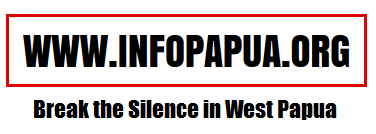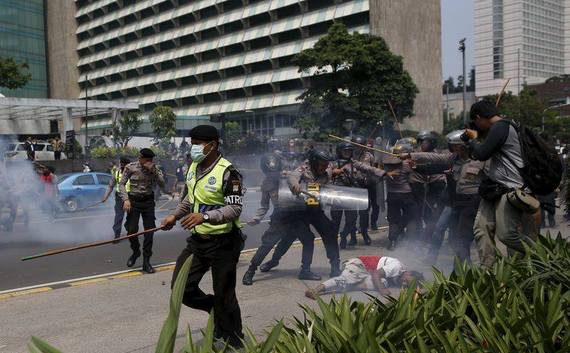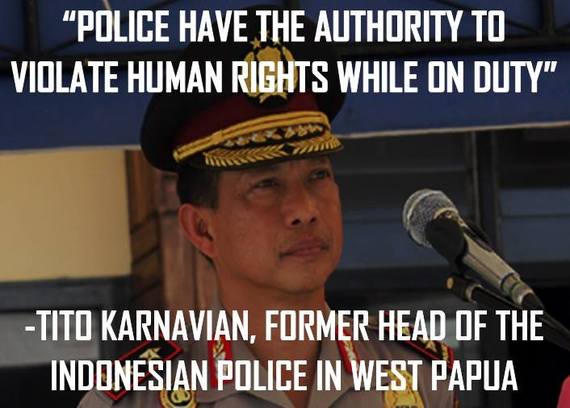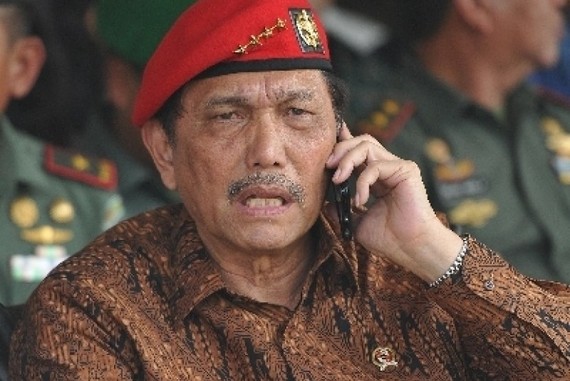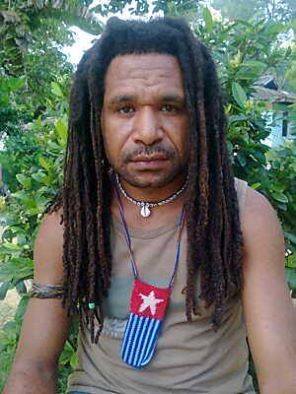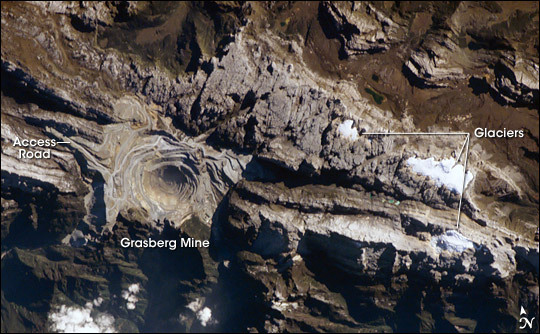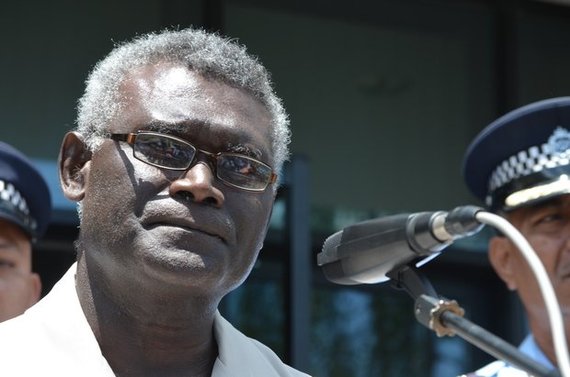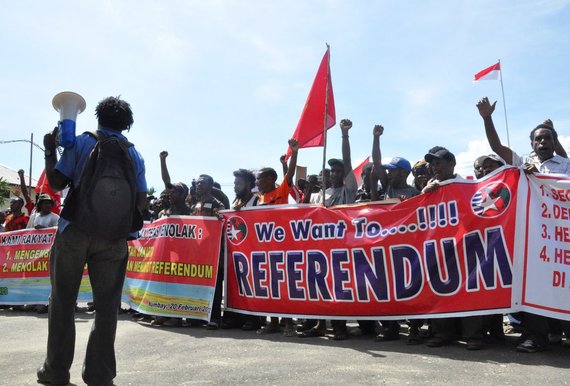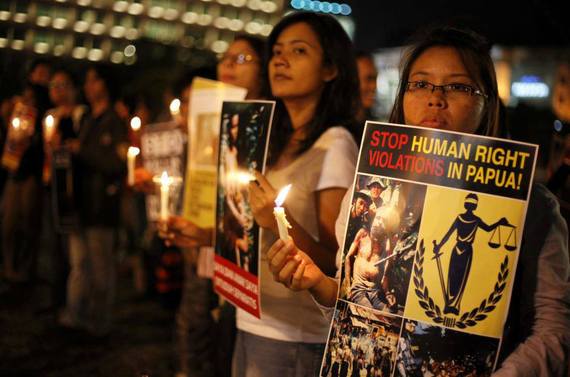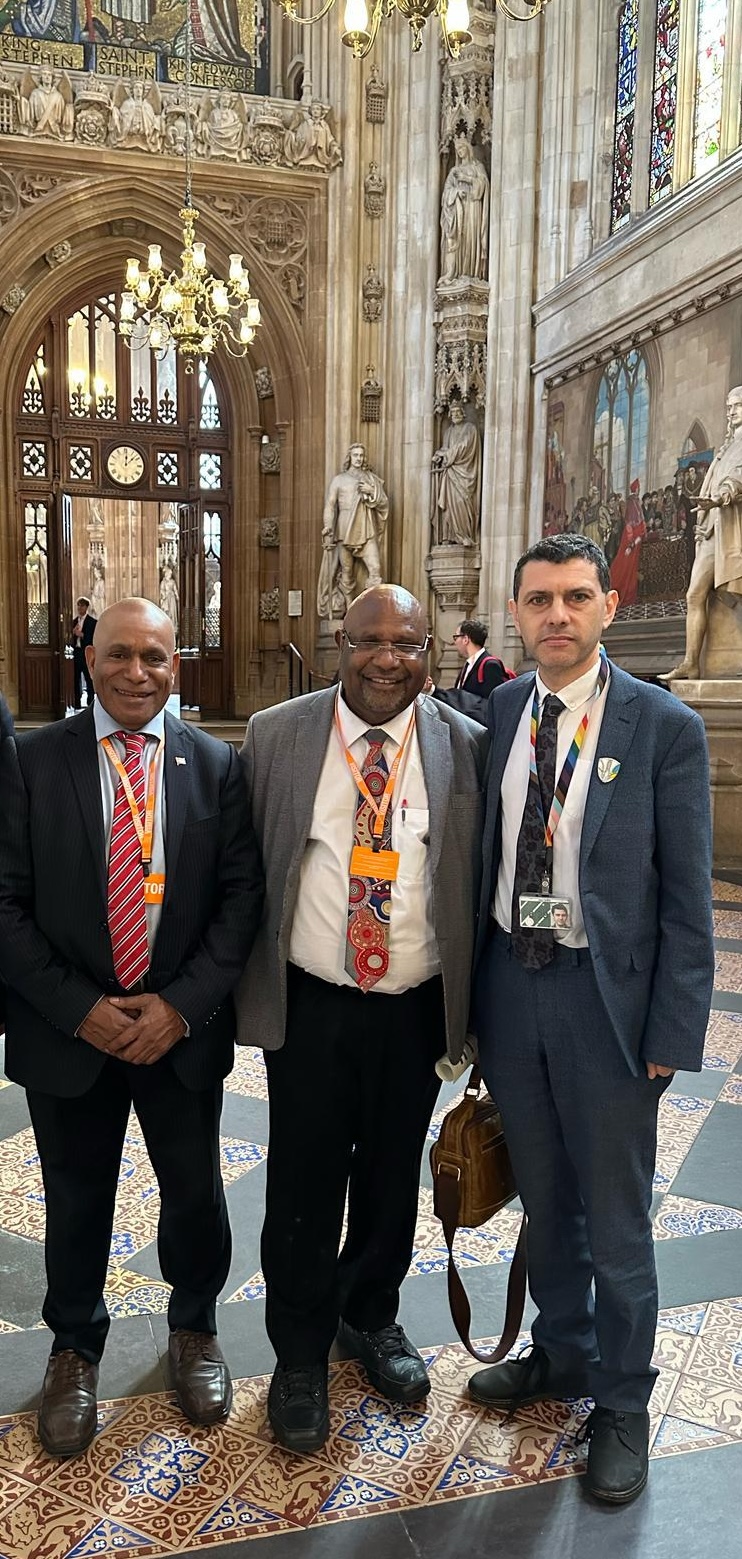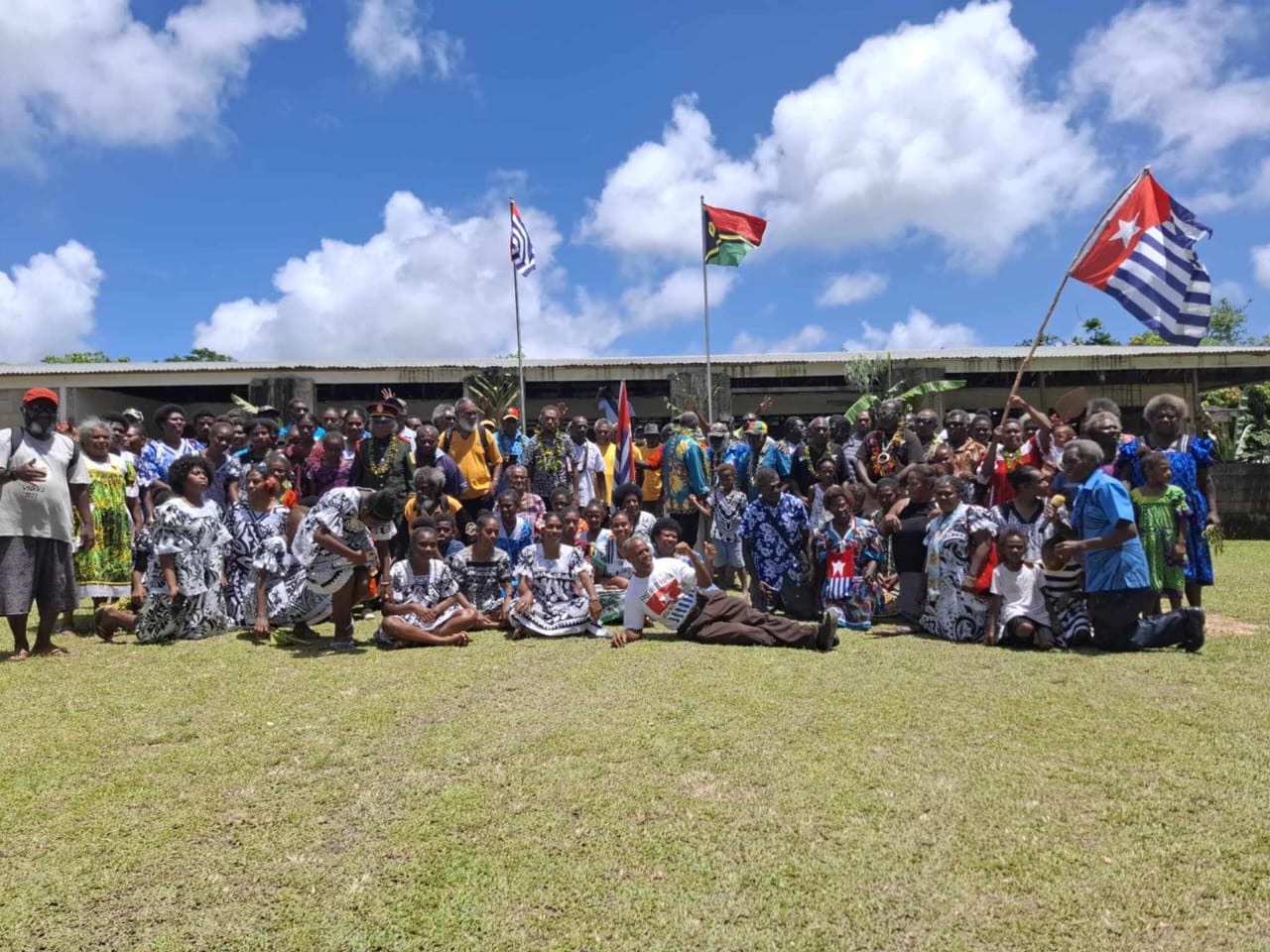Life in West Papua is very hard. We do not enjoy the freedoms that people in many democratic countries get to experience. We cannot raise our national flag without risking imprisonment. We cannot express our political opinions without risking being found guilty of treason. We cannot hold peaceful protests without risking being arrested and tortured. This has been documented again and again. So many of us have died in our struggle for self-determination, but we have never lost our hope of a better future. We know we have a right of self-determination under international law because the decolonisation process following the end of Dutch rule was never completed.
Jeremy Corbyn’s statement of support for us in the British Parliament has filled the people of West Papua with hope and renewed strength. The Government of Indonesia repeatedly claims to the international community that the people of West Papua have already exercised our right to self-determination through the 1969 Act of Free Choice. However, when one studies the facts closely it is clear that what took place was neither free nor fair. Only 1,026 handpicked individuals were allowed to participate out of a population of 800,000. That equates to less than 0.2% of the population. Furthermore, these people were forced to reach a decision by a Javanese system known as Musyawarah (consensus). This does not allow dissent or opposition. What took place was a violation of international law. Even British Diplomatic Officials at the time recognised as much.
Hugh Lunn, a Reuters journalist who was in West Papua to report on the events at the time describes in detail the atmosphere of violence and intimidation created by the Indonesian military which made the outcome inevitable:
“It was not free and there was no choice“ he recalled, before describing how he witnessed West Papuans who were calling for independence being “bashed up and thrown in the back of an Indonesian army truck“.
Since West Papua was incorporated into Indonesia in 1969, our people have suffered a catalogue of gross human rights abuses which many global institutions have described as genocide. Even today the killings continue despite claims by the Government of Indonesia claims that the situation is improving.
The Government of Indonesia states there is democracy in West Papua and that Papuans have the right to participate in elections every 5 years. But these elections offer us no choice. The only choice they offer us is to remain within the Indonesian political system.
It is illegal for us to set up a political party in West Papua that advocates for independence, which is our overwhelming desire. We do not have any recognised political party that can effect change for us within Indonesia. Can you imagine for a moment if the British Government banned the Scottish National Party because it advocates for independence?
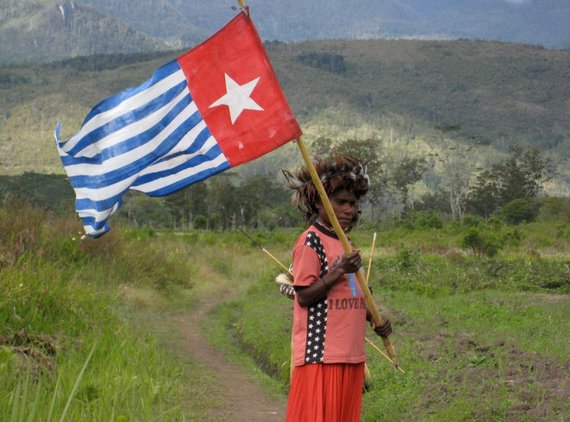
It is illegal to raise the West Papuan flag, the Morning Star.
The facade of Indonesian democracy does not end there. This is a ‘democracy’ that imprisons West Papuans for 15 years if we raise our national flag. It is a ‘democracy’ that arrested and detained for several hours approximately 2,000 peaceful protestors only 2 weeks ago for the ‘crime’ of supporting the IPWP event in the British Parliament. Indonesia is a ‘democracy’ that continues to keep West Papua closed off to the outside world, banning foreign media and expelling all international NGOs from the region. Clearly something doesn’t add up.
In March this year, Indonesia’s Coordinating Minister for Politics, Law, and Security, Luhut Binsar Pandjaitan, told the United Liberation Movement for West Papua, an organisation that represents West Papuans, to leave the country. It tells you a great deal about the approach of ‘democratic’ Indonesia that they take this stand. It’s even more interesting when you take a closer look at the background of Luhut Pandjaitan. He is a former army general from the notoriously brutal Kopassus regiment. He commanded troops in East Timor during the genocide of the people there, and has now been given a leading role in trying to maintain Indonesia’s control of West Papua. Imagine how our friends in East Timor feel, who have long called for him to face justice at The Hague.
In light of a steady stream of misinformation and propaganda that the Government of Indonesia has been circulating, I feel it important to set the record straight on a number of other issues.
The Government of Indonesia claim that West Papua is now an open zone for foreign media. However, as recently as 8th January 2016, France 24 TV correspondent Cyril Payen was refused access to the region as it was claimed his previous reporting focused on pro-independence sentiment in the region and was “biased and unbalanced’. If a free media is a central element of a democracy then Indonesia clearly has a great deal to learn. In a separate incident in August 2014, two French journalists were imprisoned for reporting in West Papua without relevant permits. Martinus Yohame, an independence activist who met the journalists during their visit was found dead a week later, having been kidnapped, tortured and then dumped in the sea in a sack, with his hands and feet tied.
The truth is that journalists are freer to visit countries like Syria, Iraq, and North Korea than they are to visit West Papua. The Government of Indonesia continues to maintain West Papua as a closed territory so that their military can continue their campaign of killings, away from the scrutiny of the international media. A handful of journalists have indeed managed to get into West Papua undercover, sharing footage showing untold suffering and bloodshed.
The handful of foreign journalists that have been granted official access recount stories of being followed by Indonesian intelligence officials, heavily restricted in where they were able to visit, and unable to speak to West Papuans out of fear of reprisals.
The Government of Indonesia claim that the so-called ‘Special Autonomy’ status that they granted to West Papua gives us a bigger share of revenue controls. This is the same ‘Special Autonomy’ status that was supposed to grant West Papuans the right to fly their flag without fear of arrest or prosecution. We all know it is lies.
The truth is that we have no control over our financial affairs. The power is held in Jakarta, which is where most of the money from the natural resources being stolen from our land is syphoned too.
The Government of Indonesia believes that their strategy of focusing on economic development in West Papua will reduce independence sentiment. It is actually having the opposite effect. We regard Indonesia as a colonial occupying power, and seek them to leave our land, stop stealing our resources and let us live in peace. Indonesia’s continues to steal our resources and encourage logging of our land. Of particular concern is the Merauke Integrated Food and Energy Estate (MIFEE) which covers a total area of about 2.5 million hectares. Indigenous peoples have already lost large areas of their land to the companies investing industrial plantations in the State-initiated project and suffered human rights abuses.
The Government of Indonesia claim that allegations of human rights abuses are exaggerated and that Papuans are also perpetrators of violence. Multiple international bodies have confirmed that since 1962 hundreds of thousands of innocent men, women and children have been slaughtered by the Indonesian military. Those to have published reports include Yale University, Amnesty International, The Asian Human Rights Commission, The International Coalition for Papua, Human Rights Watch, Sydney University, the International Association of Genocide Scholars and Warwick University.
If there is no genocide happening then surely it would be in Indonesia’s best interests to immediately open access to West Papua, allow UN human rights inspectors to visit and also allow free access to international NGOs and foreign media?
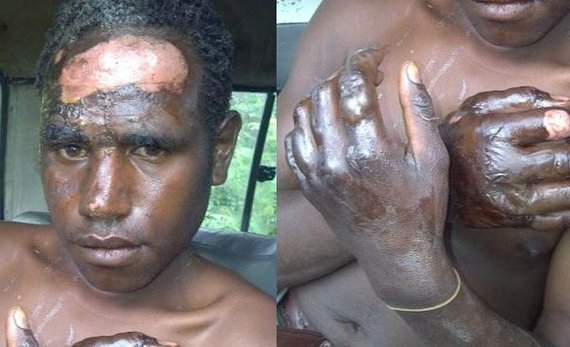
A young Papuan who had glue poured over his head by Indonesian soldiers before being set on fire. 2011.
There is rarely any action taken against the perpetrators of state directed violence against Papuans. In 2010, video footage was leaked showing Indonesian soldiers burning the genitals of an elderly Papuan man they had detained. They also attempted to suffocate him. Despite a huge international outcry, the soldiers involved received lenient sentences of between 3 and 9 months imprisonment. When such sentences are handed it confirms to us Papuans that we can have no faith in the state of Indonesia to act to protect us or provide justice. This was further confirmed when the Government of Indonesia ordered all foreign NGOs to leave West Papua last year following international outcry at the massacre of school children in Paniai by the Indonesian army.
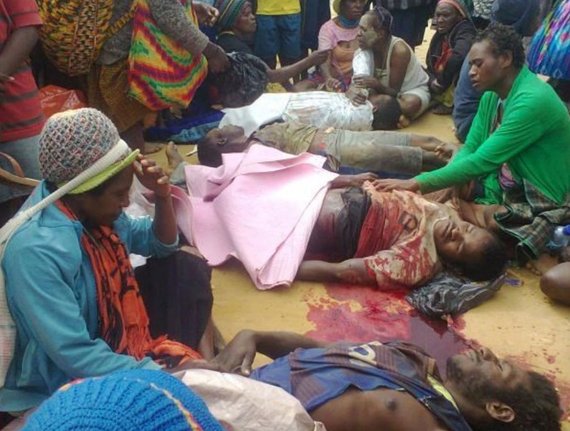
Mothers mourn the loss of their murdered children in Paniai, December 2014.
The Government of Indonesia questions why the United Liberation Movement for West Papua has reservations about their membership of the MSG. But the ULMWP are not alone. The Solomon Islands Prime Minister has gone on record as saying that the Indonesian President’s apparent rejection of the resolution reached by the Pacific Islands Forum leaders in Port Moresby in 2015 for the deployment of a fact-finding mission in West Papua as well as the Indonesian President’s refusal to meet with him in his capacity as the MSG Chair on the issue of West Papua, are very strong grounds warranting the MSG to take the matter to the United Nations.
West Papuans are Melanesian Pacific Islanders. We have never felt Indonesian and we never will. Many of us in have suffered years of racism, discrimination and displacement under Indonesian rule. What we want above all is West Papua to be a land of peace and justice. A land where people are treated as equals. A land where our children can go to school in the morning and we do not need to worry that they may not return or be forced to convert to Islam. A land where our mothers and sisters can tend to their gardens without fear of being raped by Indonesian soldiers. A land where our fathers can speak their minds without being murdered in front of our eyes.
Many people in Indonesia are starting to discover the truth about what is happening in West Papua and are bravely taking a stand, calling for our human rights and our fundamental right to self-determination to be respected.
Jeremy Corbyn and other politicians from around the world have shown principled leadership in recognising our plight and assuring us of their continued support. We hope that they will continue to work closely with West Papuan leaders, as well as other members of the International Parliamentarians for West Papua.
There will be challenges ahead on the road to freedom, but as Papuans we will work together to solve them and run our country on our own terms. A land where freedom, justice and opportunities for all will be at the core of our constitution. A land free from racism and discrimination, hardship and brutality. The land of the Bird of Paradise and the Morning Star.
History, truth and justice is on our side.
–
Benny Wenda is West Papua’s independence leader, International Spokesman for the United Liberation Movement for West Papua (ULMWP) and founder of the Free West Papua Campaign. He has been nominated for the Nobel Peace Prize and lives in exile in the UK.
